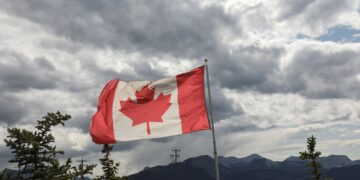(Corrects to add dropped ‘GDP’ to second bullet point)
TOKYO (Reuters) -Japanese Prime Minister Shigeru Ishiba heads to Canada on Sunday for trade talks with U.S. President Donald Trump, hoping to persuade him to drop trade tariffs that have imperilled Japan’s auto companies and threaten to undermine his fragile government.
The two are expected to meet on the sidelines of a summit of the Group of Seven nations in Kananaskis, Alberta, for their second in-person encounter. It follows a sixth round of high-level trade talks in Washington on Friday.
Japan’s top tariff negotiator, Ryosei Akazawa, said he explored the possibility of an deal in detailed meetings with U.S. Treasury Secretary Scott Bessent and Commerce Secretary Howard Lutnick.
The trick for Ishiba, who spoke with Trump by phone on Friday, will be to get the president to drop the 25% tariff he imposed on Japanese cars, as well as a paused 24% across-the-board levy that Trump calls a reciprocal tariff, without making concessions that could hurt the prime minister’s public support at home.
Returning to Tokyo with no deal would be better politically than conceding too much, analysts say.
“If it goes badly, it could even be seen as a positive for Ishiba, standing up to Trump and standing up for his country when he’s under assault,” said Michael Cucek, a political science professor at Temple University in Tokyo.
Ishiba and his ruling Liberal Democratic Party face an upper house election next month that comes after a lower house loss in November that left him reliant on the support of other parties to stay in power. Another poor electoral result could bring down his government and would force Trump to reset trade talks with a new Japanese administration.
“The most important thing is that Ishiba does not cave in for a bad (auto) deal,” said Joseph Kraft, a financial political analyst at Rorschach Advisory in Tokyo. “I expect there will be some kind of deal, although it could be haphazard. Trump needs some good news and I don’t think he has much interest in G7 activities.”
Failing to reach an agreement in Canada might not have an immediate economic impact on Japan, but tariffs that stay in place will eventually drag down growth, said Asuka Tatebayashi, senior analyst at Mizuho Bank.
“If you look at the data for car exports to the U.S. for April, it was quite striking. The volume in dollars was down by nearly 5%, but the number of cars has increased a lot,” she said.
“It means either they are only selling cheap cars or the manufacturers are absorbing the cost. I think the latter is the case and this is not very sustainable.”
Tariffs could shave 0.9% off Japan’s gross domestic product, Mizuho Research & Technologies estimated in a report in April.
(Reporting by Tim Kelly; Additional reporting by John Geddie; Editing by William Mallard)
By Tim Kelly

















